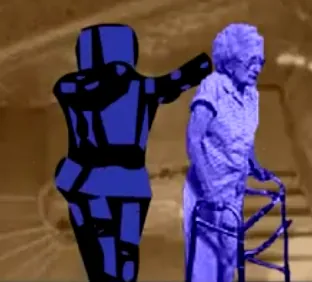domain:dynomight.net
Rare earth refining is a regulatory issue on heavy metal contamination for groundwater and waste disposal, which is itself critical to even perform the refining in the first place due to the circular recycling of outputs to generate usable high purity rare earths. You can't just Abundance permitwaive your way to rare earth mastery, you need a whole ecosystem of internal processes to even get something useful to begin with. Rare earths are a definitional misnomer because the elements are everywhere, but what IS rare is the critical processing mass necessary to even get something usable for modern high end technology.
I think what is highly underappreciated is how differentiated rare earth streams actually are. A single refiner can't actually just take in any raw material and convert it to intermediate rare earths, it requires significant chemical injection at many stages of the industrial separation process before it can be refined for intermediate stage. Rare earths is actually a humongously heterogenous process, so institutional knowledge is not 1-1 transferrable across different types of rare earths. Thats not to include all the corrosion effects that happen at transportation stages between facilities which require networked facilities with clear logistics between them. Chinese investments in clean tech and workers safety isn't because they valued human life, its because the usable material at the end of the process is useless if Wangs wang is inside the smelter. This is why you can't do either western permitwaiving or third world bodywasting to get a REE facility spun up at all, let alone quickly or economically viably.
What makes Chinas REE export ban so troubling is that China isn't actually losing out that much economically from it - as OP stated, REE isn't actually that expensive on a unit cost basis. However for receiving so little direct pain this causes huge downstream problems for other manufacturers elsewhere. This is frankly a repeat of the recycling debacle which ended the economic viability of shipping recyclable materials to China for processing, except the economic effects are more directly felt.
Stockpiling for rare earths is also a dead end. End output metals like neodynium etc are oxygen and moisture sensitive, so stockpiling is normally in terms of intermediate products... which still need refiners after that. WW2 saw fighter engines produced by the thousand, but honestly the more relevant example is WW1, where phosphate import restrictions forced Germany to develop the Haber process to continue arms manufacturing. I'm sure there are smart dicks at DARPA who are trying to find materials that can overcome REE or other foreign dependencies, but if it turns out chips and magnets really are only manufacturable in certain locations and reshoring is impossible then honestly the world can turn really ugly really fast.
We had a $1,000 bill, it had Grover Cleveland's face on it. We also used to have a $5,000 bill (James Madison) and a $10,000 bill (Salmon P. Chase, the Treasury Secretary that introduced the modern day banknote). They were all made to be used by big banks to facilitate interbank transactions, and in the 1960s they were discontinued because we didn't need to move bills around to move money between banks anymore. I wonder how difficult it would be to bring them back?
Obviously the broadcast spectrum is in limited supply and has to be regulated somehow. In times when the number of channels which could be transmitted were sharply limited, I can also see why the government wanted some control over content rather than leasing frequencies to the highest bidder.
This is also where public service broadcasters (like the BBC in the UK or ARD in Germany) come from: if you only can carry one or two radio or TV stations, then letting some private company transmit would give them a lot of power over public opinion. On the other hand, you also do not want the broadcaster to be beholden to the government. Hence these semi-independent structures which are funded through (often unpopular) mandatory fees payed by the citizens. By contrast, there was never a bottleneck with newspapers, because any kiosk could easily stock dozens of them.
While a whopping 16% of Americans still get their TV signal OTA (in Germany, the number is 3%), the state of the art technology to get video to the consumer is the internet. 90% of US households have broadband internet access. The only thing left for the regulators to do is to enforce some basic net neutrality (i.e. consumers pay for bandwidth, their ISPs does not get to bully content providers for preferential treatment) and let the court system handle illegal content.
All this OTA and cable stuff with complex rules around it, as well as European mandatory fee broadcasters and licensing requirements for streamers feels incredible archaic to me. Like squabbling over government mandates related to horse-drawn mail coaches when cars and the interstate network exist.
Oh, i missed that, although I'm not sure it matters to my thoughts on it.
At one point I hoped that open source, decentralized social media would be more resistant to censorship. Apparently some of its pioneers had the same dream. It seems crazy naïve now.
A furnished bedroom with private bathroom for 2 in a central location $5-7.
Per night? I assume that's not the rate to buy.
Yeah there's a general global effort to sunset large bills.
I think the one with Scott is referring to the fact that in some of his leaked private correspondence he once said "HBD is probably partially correct or at least very non-provably not-correct". Her wording is stretched to the point of being false, though; "scientist" means "one who does science", not "one who believes science".
Well, it's like the problems of video games in recent years. They think theres a larger audience out there they can get but their current one is so toxic it's preventing them from getting it. Thus you have the choice of ditching your old users and hoping the new bigger userbase gets on board or slowly dying with your old users.
Bluesky is a profit driven company so of course they have to take the risk of more users and thus higher profits over guaranteed slow death.
Obviously the best solution for the US is to bring all of these capabilities in-house (to one degree or another) but the funniest solution would just be to say "these Chinese have made their ruling, let them enforce it" and then buy secondhand from India, same way the Russians have been getting around our sanctions.
This is a better take on the Palisades fire than my take.
And my general point still stands.
I'm thinking particularly of politics.
For an example... I remember being very struck by this listening to a podcast with Sophie Lewis, a family abolition advocate. Unfortunately the one I'm thinking of as since been taken down, but this kind of conversation. Other examples of the podcast I was originally thinking of have the same kind of high-strung, nervous energy that I was trying to describe. Another way of putting it might be just the way that Robin DiAngelo talks.
Perhaps a linguist would be able to explain this better than I can, but there's a feeling I get somewhere beneath the surface where, say, Steve Turley comes off as wanting to yell. He has the energy or vibe, I suppose, that I associate with having clenched teeth, or wanting to punch someone. I get the opposite feeling from people like Lewis or DiAngelo - not actually crying or having an anxiety attack, no more than Turley is actually laying about himself with a golf club, but a sort of... 10% or 15% concentration of the same ingredient that would, at 100%, lead to those more spectacular breakdowns.
I do think it's gendered - I don't get, for instance, any of the nervous energy I'm talking about from Ezra Klein. He comes off to me as professional and articulate, and I think in general men don't project anxiety as much as women (and when they do, they come off as effeminate and weak and that makes it very hard for them to build a brand). But I think it's fair to say that women are more prominent in the left-wing sphere, and right-wing culture warrior women do more to imitate the angry affect anyway.
I mean that feeling as a kid is the closest thing to being invited to join the Illuminati that any of us are likely to get.
Well you know, until the other big secret everyone pretends to believe, you know the one I'm talking about.
Introduce a $200 bill. Inflation means that the $100 bill is no longer as useful as it once was. It is time to acknowledge this by creating a higher denomination note. Whose face should go on the bill? My preference would be Ronald Reagan, but if we absolutely must have a woman on the bill, let's go with Ayn Rand.
If we actually want it to be done we should have Donald Trump's face on the bill. Or maybe also introduce a $1,000 bill with Trump's face.
Just think, Trump could be the face of stockpiles of US currency in countries which don't have a stable currency of their own.
(to be clear I would unironically support this)
I appreciate you.
I don’t think any of this will actually make currency more useful than ubiquitous payment processors, so I don’t see the need for #3.
...unless you consume things the payment processors don't like.
The time wasn't right because there were too many useless coins.
The problem is that local taxes are harder to deal with. You have state and local taxes to deal with which makes it almost impossible to make a national ad for a product if you have to include taxes. Just crossing a city/county line can change prices by a dollar or more depending on the product. If you cross a state line, you can get even bigger effects.
I've never used dating apps. It would be pointless; since I'm in the DC area, white women who aren't the type to put those "HATE HAS NO HOME HERE / NO HUMAN BEING IS ILLEGAL" signs in their yards are damned few and far between unless you go way beyond the reach of public transit (I have no car).
No problem, this is something we're all still trying to figure out. I wonder if there'll be a future career path of "prompt engineer", or, more fancifully, "LLM whisperer"...
Canada already rounds cash purchases to $0.05, and it works fine. Sure, you can avoid a $0.02 upcharge or get a $0.02 discount when using cash, but nobody cares about that much money.
That being said, I wouldn't fix prices at $0.25 increments, at least at the low end. There is a real difference in price between a $0.65 can of soup and a $0.85 one, despite both rounding to $0.75. Maybe one cent increments up to five dollars (no more 9/10 of a cent for gas), and 25 cent increments after that.
Pass a law requiring prices and salaries to be advertised after tax.
The difference is that Starbucks charges everyone they sell a coffee to the same sales tax, but different employees are very likely to pay different income taxes. In Germany, you get tax credits for being married to someone without much income (Ehegattensplitting, also known as Herdpraemie (stove bonus)) and having kids. Depending on circumstances, you can also deduct a lot of different expenses from your taxes.
The closest practical solution to your proposal I can see is that jobs are required to advertise what a fictional reference employee (18yo, able-bodied, single, no kids, no other sources of income or deductible expenses) would get as a paycheck. Of course, for a single parent who already has another part time job, the amount they will make will likely be different.
Ah, TIL.
Where the feelings of aggression come in is he has a very intense stare, and I really do feel a sense of "this is an angry person looking at me with aggression" when he looks into the camera. This is a startlingly aggressive gaze for a youtuber to be making into the inanimate object of a camera. And the shadow that his ballcap casts onto his face doesn't really help.
Interestingly, at least this particular freeze frame does not actually register as particularly aggressive to me - I just read it as something like "triumphant expectation", like he thinks he just made a winning point in an argument and is waiting for me to concede.
I come from red country; the conservative men I know don't give off "aggressive, uncoordinated," vibes, but rather "more coordinated and chill than average."
To be clear, I didn't posit it as a general trait of conservatives; rather, it seems to me to be something that conservatives now appreciate in their influencers/thought leaders/talking heads.
For an example that separates the traits I am talking about from "working class markers" (as @OliveTapenade suggested), I got the same sense of unexpected aggression from the handful of Jordan Peterson clips I have watched. My feeling there was that he perpetually talked with a tension that sounded like a professional middle class father who was five seconds away from slapping his son so hard that he would fly across the room.









Nah. It’s mämmi and we embrace it.
More options
Context Copy link